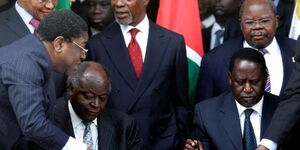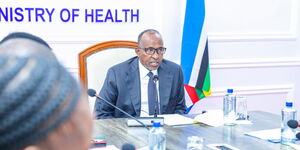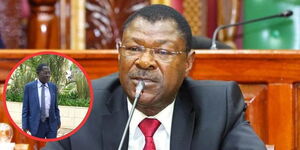The German government has pledged to disburse Ksh14.5 billion (112 million euros) to the Kenyan government to aid in the transition to 100 per cent renewable energy.
From the funding, Ksh194 million (1.5 million euros) will be spent on anti-graft programs, while Ksh3.8 billion (30 million euros) would be spent on making Kenya's agriculture more resilient to drought.
Also, the funds will be used to produce hydrogen which can be utilised in the production of fertiliser.
An additional Ksh3.8 billion (30 million euros) will go to training programs and Ksh6.6 billion (51 million euros) will fund new energy infrastructure and hydrogen production.
According to Sebastian Groth, ambassador to Kenya, Somali, and Seychelles, the partnership between the two countries will also create jobs for Kenyans.
This was part of a deal struck between President William Ruto and German Chancellor Olaf Scholz during the UN climate conference held in November 2022.
Initially, Ruto emphasised that the new administration is focused on shifting from non-renewable energy to renewable energy sources.
One of his plans was to introduce electric vehicles that also rely on solar power and also erecting accessible charging ports in all urban areas and along major highways.
On Thursday, November 10, Ruto announced plans to adopt electric motorbikes that would use renewable energy in a bid to phase out the use of fossil fuels.
"There is no reason why we should not begin to walk the journey towards e-mobility. This is in line with the goal of curbing the effects of climate change," Ruto declared.
By 2030, the country aims to entirely phase out the use of fossil fuels for electricity generation.
On Wednesday, December 7, the Electricity Association of Kenya (ESAK) emphasised on its readiness to support the growth in energy demand.
This will involve more focus on e-mobility and green hydrogen derivatives including fertiliser and e-methanol.












